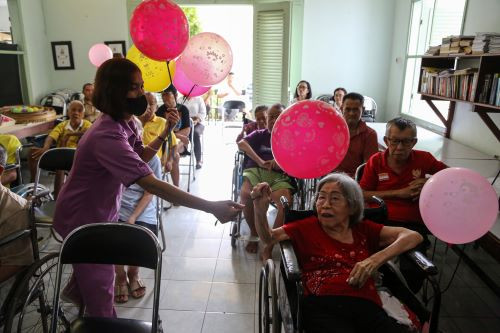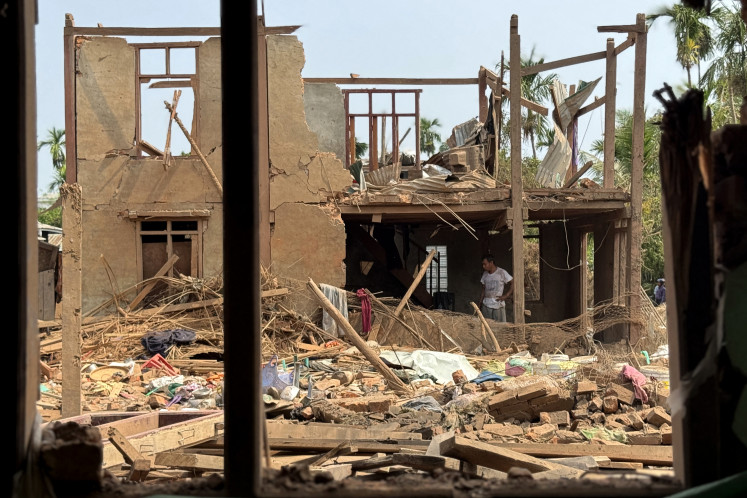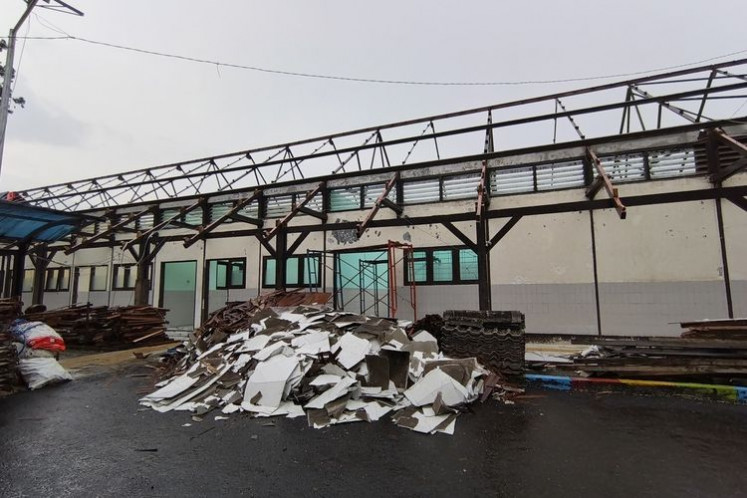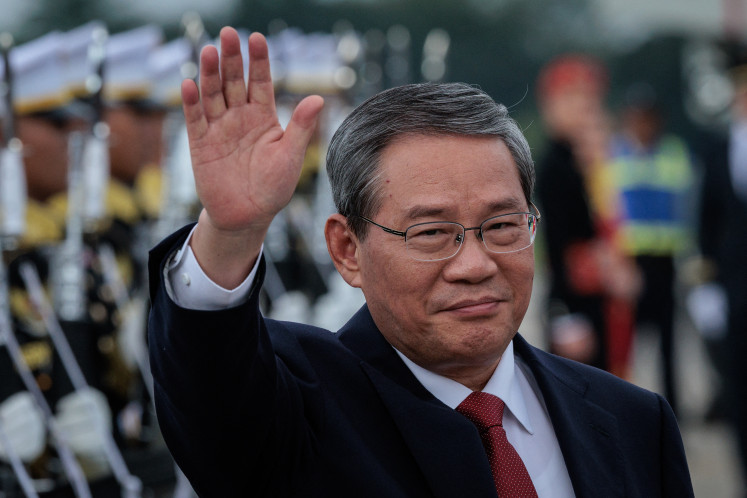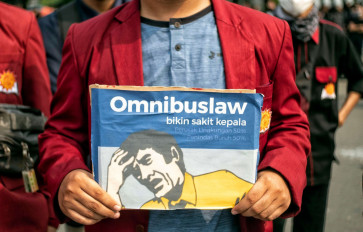Making ASEAN a safe place for environmental human rights defenders
ASEAN nations have some of the grimmest records in terms of defending environmental human rights defenders, only second to Latin America.
Change text size
Gift Premium Articles
to Anyone
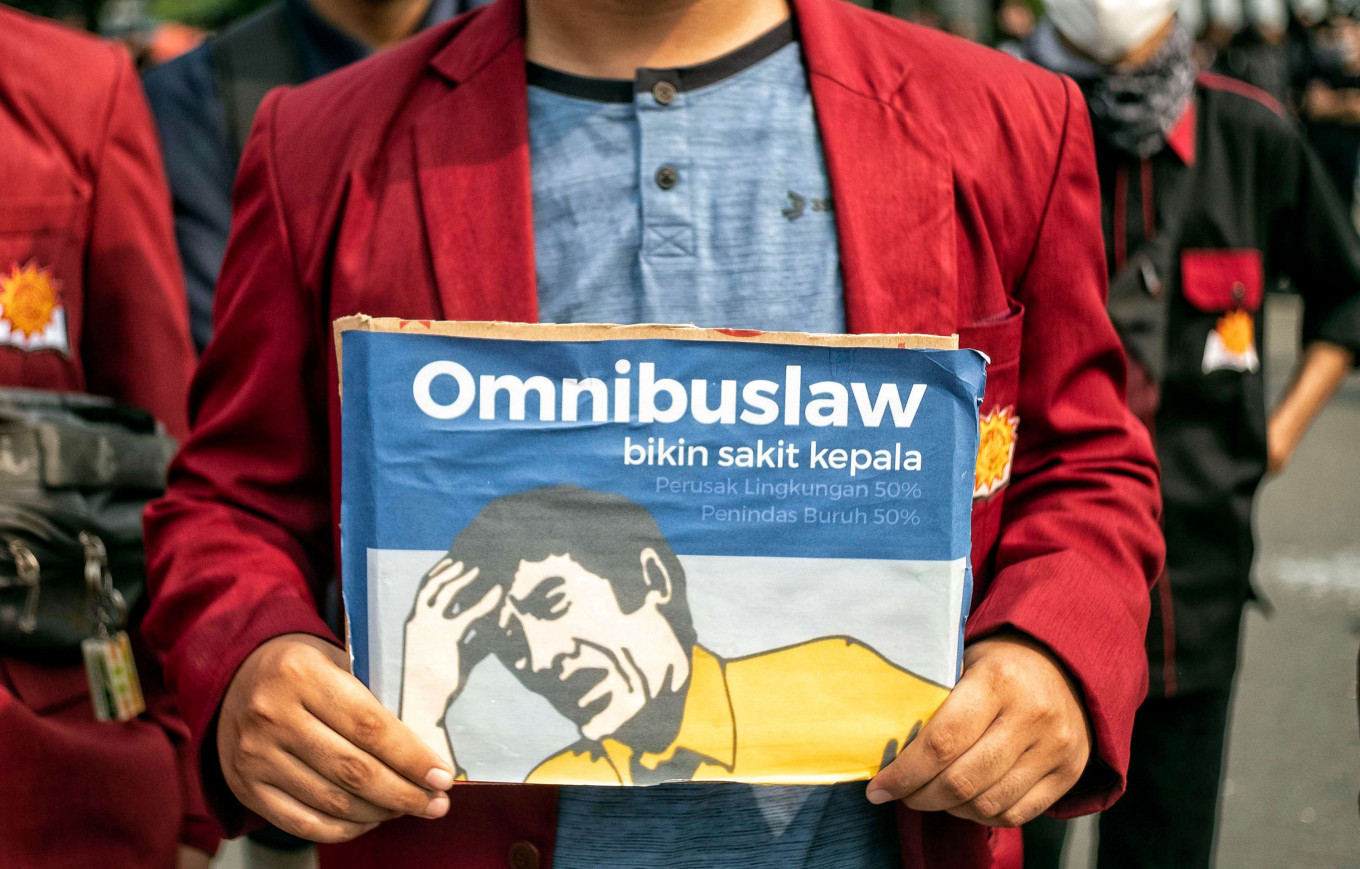 Severe migraine: A student protester holds up a poster based on the packaging design of a headache medicine on Oct. 8, 2020, during a demonstration on Jl. MH Thamrin in Central Jakarta. The poster reads: “The omnibus law causes headaches, environmental damage, workers’ oppression.” JP/Seto Wardhana (JP/Seto Wardhana)
Severe migraine: A student protester holds up a poster based on the packaging design of a headache medicine on Oct. 8, 2020, during a demonstration on Jl. MH Thamrin in Central Jakarta. The poster reads: “The omnibus law causes headaches, environmental damage, workers’ oppression.” JP/Seto Wardhana (JP/Seto Wardhana)
With a crippling triple planetary crisis unfolding, how do we put the right to a healthy environment into practice?
Finding an answer to this question was the center of a bold speech by Inger Andersen, the executive director of the United Nations Environment Program, given at the United Nations Climate Conference (COP28) last November in Dubai.
How to do so in regions like Southeast Asia is even more challenging.
With seemingly unlimited potential for exponential growth but also an uncompromising wave of inequalities compounded by a weak human rights framework, the region should play a central role in promoting and implementing the newest right humanity can enjoy.
“However, to fully implement the right, we must not forget to safeguard those who have been standing tall against environmental destruction for decades, environmental human rights defenders,” Andersen said in her speech.
ASEAN nations have some of the grimmest records in terms of defending environmental human rights defenders, only second to Latin America. In the specific case of women environmental human rights defenders, Southeast Asia comes out top.





